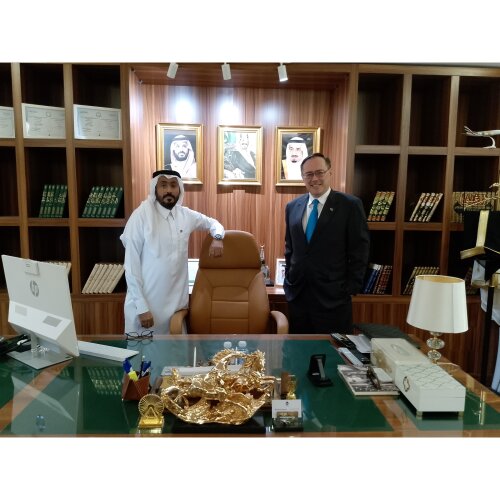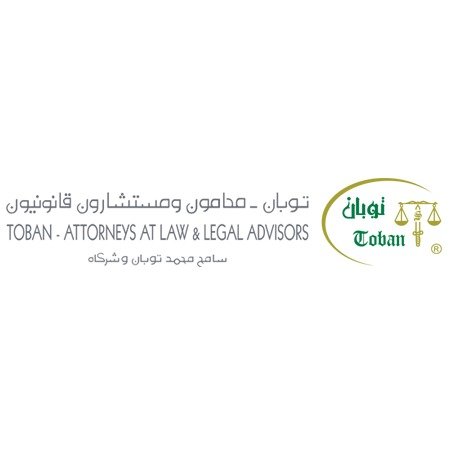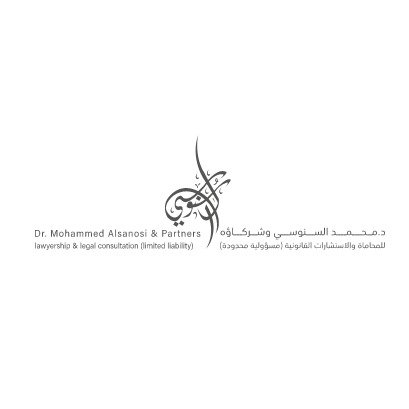Best Energy, Environment & ESG Lawyers in Jeddah
Share your needs with us, get contacted by law firms.
Free. Takes 2 min.
List of the best lawyers in Jeddah, Saudi Arabia


Mutlak Ali Al Nejrani, Lawyers & Legal Consultants
30 minutes Free ConsultationAbout Energy, Environment & ESG Law in Jeddah, Saudi Arabia
The fields of Energy, Environment, and Environmental, Social, and Governance (ESG) law are rapidly evolving in Jeddah, Saudi Arabia. Energy law covers the legal frameworks surrounding the production, distribution, and regulation of energy resources, including oil, gas, renewable energy, and utilities. Environmental law focuses on the protection of natural resources, the regulation of pollutants, and the conservation of biodiversity. ESG law examines how companies address environmental sustainability, social responsibility, and governance practices within their operations. Together, these areas are central to the Kingdom’s Vision 2030 which aims to diversify the economy, preserve the environment, and enhance overall corporate responsibility.
Why You May Need a Lawyer
Individuals and businesses operating in Jeddah may require legal assistance in Energy, Environment, and ESG for a variety of reasons. Legal complexities can arise when seeking permits for energy projects, navigating compliance with environmental regulations, responding to governmental investigations or enforcement actions, or managing environmental risk in mergers and acquisitions. Companies may need guidance to develop ESG policies that meet local and international standards, especially as investors and stakeholders increasingly scrutinize corporate sustainability and social accountability. Disputes over land use, pollution, or non-compliance with environmental and energy regulations also commonly result in the need for legal advice or representation.
Local Laws Overview
Saudi Arabia has implemented a series of laws and regulations governing energy, environmental protection, and ESG practices, especially in major cities like Jeddah. The Saudi Energy Efficiency Center (SEEC) regulates energy consumption and promotes energy-saving initiatives. The Ministry of Energy is responsible for the broader framework of energy-related policies and licensing. Environmental regulations are primarily managed by the National Center for Environmental Compliance (NCEC), which oversees the implementation of the Kingdom’s Environmental Law, including permits for emissions, waste management, and conservation of natural resources. ESG governance is guided by principles from the Saudi Capital Market Authority (CMA) and the Tadawul ESG Disclosure Guidelines, which encourage transparency in corporate governance, environmental impact, and social responsibility. Companies, especially those seeking public investment, are increasingly required to report on their ESG metrics. Compliance, regular reporting, and ongoing audits are often mandatory to ensure standards are upheld and risks are mitigated.
Frequently Asked Questions
What is ESG and why is it important in Saudi Arabia?
ESG stands for Environmental, Social, and Governance. It refers to the criteria that investors and regulators use to assess how companies handle responsibilities related to environmental protection, social impact, and corporate governance. In Saudi Arabia, ESG is important for aligning with Vision 2030, attracting foreign investment, and improving corporate reputation.
Who regulates environmental matters in Jeddah?
The National Center for Environmental Compliance (NCEC), under the Ministry of Environment, Water, and Agriculture, regulates environmental matters in Jeddah. They are responsible for enforcing environmental laws, issuing permits, and monitoring compliance.
Do companies in Jeddah have to disclose their ESG policies?
While not all companies are legally required to disclose ESG policies, publicly listed companies on the Saudi Stock Exchange (Tadawul) are strongly encouraged to do so under the ESG Disclosure Guidelines. Increased investor expectation also drives voluntary disclosure.
How can a business obtain an energy or environmental permit in Jeddah?
Businesses must apply through the relevant government authorities, such as the Ministry of Energy for energy-related permits or the NCEC for environmental permits. The process typically involves submitting documented plans, impact assessments, and compliance guarantees.
What are the penalties for violating environmental laws in Saudi Arabia?
Penalties can include fines, suspension of business licenses, orders to remediate environmental damage, or even criminal prosecution in severe cases. The severity of penalties depends on the nature and extent of the violation.
What environmental standards must new developments in Jeddah meet?
New developments must comply with national environmental laws regarding air and water quality, waste management, pollution control, and the conservation of natural habitats. Environmental Impact Assessments (EIAs) are often required before starting large construction or industrial projects.
How is renewable energy regulated in Jeddah?
Renewable energy projects are regulated by the Ministry of Energy and are subject to specific licensing, safety, and technical standards. There are also incentives and initiatives under Vision 2030 to encourage private investment in renewables.
Can citizens or NGOs participate in environmental decision-making?
While direct citizen participation is limited, NGOs can provide feedback and raise concerns through public consultations or by submitting reports to relevant government bodies regarding proposed projects or legislation.
Are there incentives for companies to follow ESG best practices?
Yes, companies that follow ESG best practices may gain access to financing, enjoy a better reputation among investors, and benefit from government support or preferential treatment in certain tenders and initiatives.
How can I find a qualified lawyer for Energy, Environment & ESG issues in Jeddah?
Look for law firms or legal practitioners with proven experience in energy, environmental, or ESG law, and verify their certification with the Saudi Ministry of Justice or local bar associations. Professional recommendations or industry networks can also be helpful.
Additional Resources
- Ministry of Energy - Ministry of Environment, Water, and Agriculture - National Center for Environmental Compliance (NCEC) - Saudi Energy Efficiency Center (SEEC) - Saudi Capital Market Authority (CMA) - Tadawul (Saudi Stock Exchange) ESG Portal - Saudi Green Initiative - Local environmental NGOs and university legal clinics
Next Steps
If you require legal guidance in Energy, Environment, or ESG matters in Jeddah, start by gathering all relevant documents and details regarding your inquiry or issue. Clearly outline your objectives and any questions you want to address. Research and identify qualified lawyers or legal firms specializing in the field. Schedule a consultation to discuss your situation and understand your legal options. Depending on your needs, your lawyer can assist with compliance reviews, permit applications, regulatory filings, due diligence for transactions, or representation in disputes. Prompt action can help you avoid costly mistakes and ensure robust compliance with Saudi Arabian laws and regulations.
Lawzana helps you find the best lawyers and law firms in Jeddah through a curated and pre-screened list of qualified legal professionals. Our platform offers rankings and detailed profiles of attorneys and law firms, allowing you to compare based on practice areas, including Energy, Environment & ESG, experience, and client feedback.
Each profile includes a description of the firm's areas of practice, client reviews, team members and partners, year of establishment, spoken languages, office locations, contact information, social media presence, and any published articles or resources. Most firms on our platform speak English and are experienced in both local and international legal matters.
Get a quote from top-rated law firms in Jeddah, Saudi Arabia — quickly, securely, and without unnecessary hassle.
Disclaimer:
The information provided on this page is for general informational purposes only and does not constitute legal advice. While we strive to ensure the accuracy and relevance of the content, legal information may change over time, and interpretations of the law can vary. You should always consult with a qualified legal professional for advice specific to your situation.
We disclaim all liability for actions taken or not taken based on the content of this page. If you believe any information is incorrect or outdated, please contact us, and we will review and update it where appropriate.
Browse energy, environment & esg law firms by service in Jeddah, Saudi Arabia
Jeddah, Saudi Arabia Attorneys in related practice areas.















